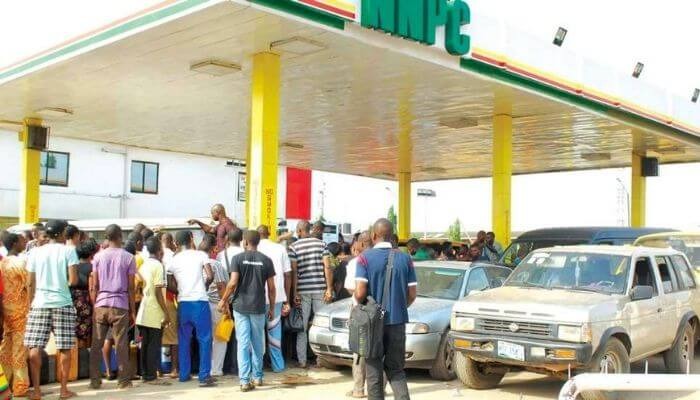The Nigerian National Petroleum Company Limited (NNPCL) has raised the pump price of petrol to ₦990 per litre in the Federal Capital Territory (FCT), while outlets in Lagos now sell at ₦960 per litre. This marks an increase from ₦965 and ₦925 per litre, respectively.
The price hike comes amidst slight declines in global crude oil prices, with Brent crude dropping to $79.98 per barrel. The adjustment reflects market driven pricing under Nigeria’s deregulated petroleum sector, where costs fluctuate based on supply and demand dynamics.
Reports indicate that other filling stations, including MRS, Heyden, and Ardova, have also adjusted prices in line with products supplied by the Dangote Refinery. Prices at various stations now range between ₦960 and ₦1,030 per litre, depending on location. For example, Shema stations are selling at ₦1,030 per litre, while outlets in Akwa Ibom have reached ₦1,100.
The recent increase follows the Dangote Refinery’s rise in depot prices from ₦899 to ₦955 per litre, which has impacted retail costs across the country. Industry insiders attribute the hikes to global market changes and the ongoing adjustment to deregulation policies aimed at resolving fuel scarcity.
While consumers adjust to the rising prices, experts, including oil and gas analyst Olatide Jeremiah, emphasize that deregulation is essential for long-term stability in the petroleum sector. Jeremiah noted, “These changes are driven by market forces. Although the hike is temporary, it underscores the sector’s movement towards deregulation.”
NNPCL stations in Lagos and Ogun states began implementing the new prices on Tuesday afternoon, leading to mixed reactions from consumers. A tricycle operator in Ketu expressed frustration over the rising costs, noting earlier queues disappeared as prices climbed.
Major marketers like TotalEnergies, Matrix and others have adjusted their prices, selling between ₦950 and ₦1,000 per litre. Some stations reportedly continue to sell old stock purchased at lower rates, but these supplies are expected to run out soon.
The adjustments highlight the evolving dynamics in Nigeria’s petroleum sector as stakeholders balance deregulation efforts with consumer demands for affordability.

